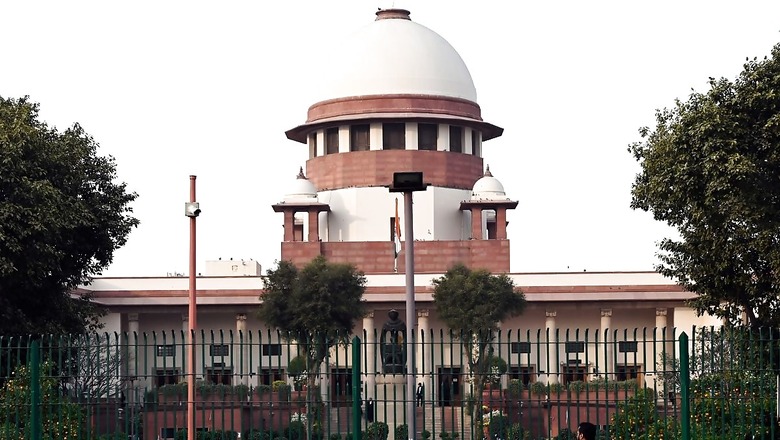
views
Thomas Erskine May, one of the most authoritative and outstanding experts on parliamentary procedures, in his work titled ‘A Treatise upon the Law, Privileges, Proceedings and Usage of Parliament’ defines parliamentary privilege as “the sum of certain rights enjoyed by each House collectively and by members of each House individually, without which they could not discharge their functions, and which exceed those possessed by other bodies or individuals. Some privileges rest solely on the law and custom of Parliament, while others have been defined by statute.”
The issue of legislator privileges has been a highly debated topic since the first general elections. Some individuals argue that legislators should not be granted immunity and privileges in Parliament that are not available to ordinary citizens. However, others believe that it is crucial for legislators to be able to exercise their rights without any fear or bias, and therefore certain privileges are necessary. This led to the emergence of Articles 105(1) and 105(2) in Parliament, as well as 194(1) and 194(2) in state legislatures.
Some arguments suggest that these articles are only applicable during the legislator’s tenure. On the other hand, the fundamental right under Article 19(1)(a) is an inherent right, and granting privileges to a select few violates the fundamental rights guaranteed to all. The reason for the confusion and the accumulation of litigations on this matter is due to the lack of a clear statute to address this.
The regulations outlined in Articles 105(1) and 105(2) indicate that the freedom of speech enjoyed by MPs is distinct from the freedom of speech outlined in Article 19, along with its exceptions. This principle was also believed to extend to state legislatures, leading to the assumption that an MP/MLA cannot be held accountable in a court of law for actions related to their speech or voting in Parliament. In contrast, the legislation in the United States, Australia, and Canada specifies that legislators can be prosecuted for bribery in connection with their legislative duties.
Today, many Commonwealth countries view corruption and bribery by members of the legislature as criminal offences.
The recent issue brought before a larger bench of the Supreme Court involved the question of whether an act of bribery by a legislator in the course of performing legislative duties falls within the scope of parliamentary privileges or not. Bribery, which does not necessarily have to occur within the legislative chamber and may have taken place prior to the legislator carrying out his/her functions, goes against the immunity typically granted to legislators.
In the case of Shah Faesal v. Union of India ((2020) 4 SCC 1), the Court emphasised the possibility of revisiting previous decisions, especially if they are deemed “unworkable” or in conflict with established principles. Consequently, the Supreme Court found it necessary to reassess its earlier ruling in the Narasimha Rao case ((1998)4 SCC 626). The settled judgement under this case is now reviewed and a revised verdict is issued under CA 451/2019 in the Sita Soren v. Union of India case. This case once and for all settles the question of parliament privileges with respect to the issue of bribery.
In the case of Alagaapuram R Mohanraj v. TN Legislative Assembly ((2016)6 SCC 82), the Supreme Court provided a detailed explanation of the distinctions between the freedom enjoyed by a legislator and an ordinary citizen. While every citizen inherits the fundamental right of speech guaranteed under Article 19(1)(a), the freedom of speech specified under Articles 105 and 194 is only available to members of the legislature. In the case of Tej Kiran Jain v. N Sanjeeva Reddy ((1970)2 SCC 272), a six-judge bench of the Court established that Article 105(2) grants immunity for “anything said” as long as it is spoken “in Parliament”. Therefore, it is evident that for parliamentary privilege to apply, it must occur within the legislature and the individual must be a member of that legislature.
In the book ‘Parliamentary Procedure’ by constitutional expert, Subash C Kashyap, it is explained that “Parliamentary Privileges do not exempt members from the obligations to the society which apply to other citizens. Privileges of Parliament do not place a member of Parliament on a footing different from that of an ordinary citizen in the matter of the applications of the laws of the land unless there are good and sufficient reasons in the interest of Parliament itself to do so”.
The Supreme Court has ruled that bribery is not exempted under Article 105(2) and the corresponding provision of Article 194 due to the fact that a member engaging in bribery is committing a crime. Additionally, it undermines integrity in public life. The illegal gains acquired through the corrupt act of bribery go against democratic principles. Furthermore, bribery as an offence occurs well before legislators even step foot in the Legislative Assembly or Parliament.
Therefore, the act of bribery is committed regardless of whether the intended action is carried out or not. Consequently, the principles of the Prevention of Corruption Act unequivocally apply to a legislator.
This judgement implies that not only verbal or voting actions, but any act of bribery that compromises a legislator’s duties towards the people of our nation, would lead to criminal proceedings under the Act and consequently disqualification. This judgement paves the way for Parliament to review certain rules and procedures that require amendment.
With the issue of parliamentary privileges in bribery cases now settled, the responsibility lies with the Parliament to introduce a law that clearly defines what constitutes privileges and what does not. Parliament must promptly enact legislation in this regard. The codification of privileges concerning legislators will help prevent confusion and aid in resolving pending court cases. Furthermore, it will decrease the likelihood of further litigations in this area. Such legislation would also prevent the misuse of these privileges by certain legislators and contribute to the decriminalisation of Indian politics.
Thus, the verdict pronounced in the case of Sita Soren v. Union of India is a significant ruling that not only overturned the previous judgement but also reinforced the eradication of corruption in politics.
Adarsh Kuniyillam is a Parliamentary, Policy, and Political analyst from Kerala. He consistently contributes articles to both national and regional publications and has actively collaborated with various think tanks. Views expressed in the above piece are personal and solely that of the author. They do not necessarily reflect News18’s views.



















Comments
0 comment